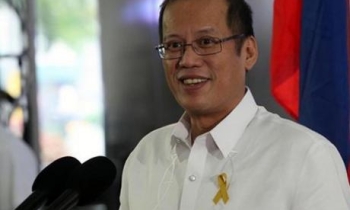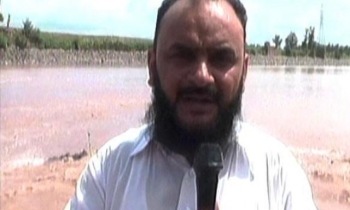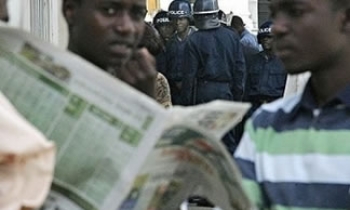The Pakistani journalist who reported on a US airstrike that killed an al-Qaeda operative was found shot to death in a remote tribal region Friday six months after he was kidnapped. The body of Hayatullah Khan was found by villagers Friday dumped in the tribal-dominated North Waziristan town of Mir Ali from where he was abducted December 5.

Khan was grabbed by five gunmen who ran his car off the road in North Waziristan, near the Afghan border, as a younger brother, Haseenullah, watched, unable to help. The day before, Khan had photographed the purported remnants of a US-made Hellfire missile which allegedly killed a senior al-Qaeda figure from Egypt, Hamza Rabia, in Miran Shah, the tribal region's main town, on December 1.
The pictures – widely distributed by the European Pressphoto Agency on the same day they were shot – contradicted the Pakistan government's contention that Rabia died in a blast caused by explosives located within the house, and not by an aerial attack. International media identified the fragments in the photographs as part of a Hellfire missile, possibly fired from a US drone.
Khan, who was also a reporter for the Urdu-language daily Ausaf, had received numerous threats from Pakistani security forces, Taliban members, and local tribesmen because of his reporting. He is the third tribal journalist to fall in the line of duty while covering militants' activities and the military operation in the region. Two journalists had been gunned down by masked men in Wana, South Waziristan, in February last year. Their killers have not been arrested.
His brother Ihsanullah Khan Dawar told the Dawn, "He looked very weak, had grown a beard while in captivity, and wore the same brown clothes he had on when he went missing. He appeared to have received five gunshots. It looks like he was shot from behind while attempting to escape." The body bore no torture marks.
"We found the body of Hayatullah Khan today near Mir Ali, and we have informed his family about it," said Mohammad Fida Khan, a local official. The body has been returned to his relatives, who took it to their village near Mir Ali. It is still unclear who Khan's killers were, but in January a Pakistani government official claimed Islamic militants may have abducted him. Khan was married and the father of four.

Ihsanullah told the Dawn that in one of the meetings with local intelligence operatives and government officials on May 15, he had been assured that the family would hear something about him on or about June 15. "And this is what we have got – his body," he said. Ihsanullah, 21, said that he had been assured time and again that Hayatullah was alive and well, but had been detained on matters relating to national security.
"We knew it all along who or which agency had held him. There is not even an iota of doubt in our mind. He was wearing sarkari hatkari (offiicial handsufs)." He blamed an intelligence agency for the murder and vowed to avenge his brother's death.
One of Khan's journalist colleagues told Committee to Protect Journalists (CPJ) in March that Khan had told his mother that the Pakistani government was threatening him. He had been told to leave journalism or move out from the region, or accept a government job there, which would effectively silence him. In July 2002 Hayatullah and four companions were detained by US Special Forces in Paktika province in Afghanistan on suspicion of being associated with al-Qaeda. The group was released after the military was able to verify their identities.
"The abduction and killing of Hayatullah must be fully explained. This is a Pakistani journalist murdered in Pakistan, and we hold Pakistani authorities fully responsible for carrying out a vigorous investigation, and prosecuting the perpetrators of this terrible crime," said Ann Cooper, CPJ Executive director. "This is a tragic loss, and our hearts go out to Hayatullah's family and friends."
"The death of Hayatullah Khan leaves a very bitter taste," Reporters sans frontières (RSF) said in a statement. "Even if there is nothing to clearly identify the killers, many people have accused the Pakistani secret services of responsibility for the abduction of this journalist, who came from the tribal areas. If the authorities want to avoid the finger of suspicion being pointed at them, they should urgently carry out a rigorous and impartial investigation."

Incidentally, it was the detention of his father by political authorities in 1992 that prompted the young man to become a journalist and expose excesses and injustices. He started working for newspapers soon after doing his first term in MSc Economics from the Government Degree College in Bannu in 1998. He courted problems with the authorities and was externed from the tribal region for two months in 2002.
Earlier in 2001, he had a brush with US forces when he was arrested in the south-eastern Paktika area of Afghanistan by US forces mistaking him for a secretary to the Taliban supreme leader Mullah Muhammad Omar. He was detained at the Bagram airbase for two months and questioned about the whereabouts of Taliban's elusive one-eyed leader.
Pakistan is a close US ally in its war on terror and past American missile strikes inside Pakistani territory have sparked mass protests across this deeply Islamic country and spurred criticism of Islamabad's ties with Washington.
The Pakistan Federal Union of Journalists and the All Pakistan Newspaper Employees Confederation have condemned the murder. The two organisations of newspaper employees said in a joint statement that they would observe a "black day" on Monday when protest demonstrations would be held and journalists would boycott assembly sessions.









